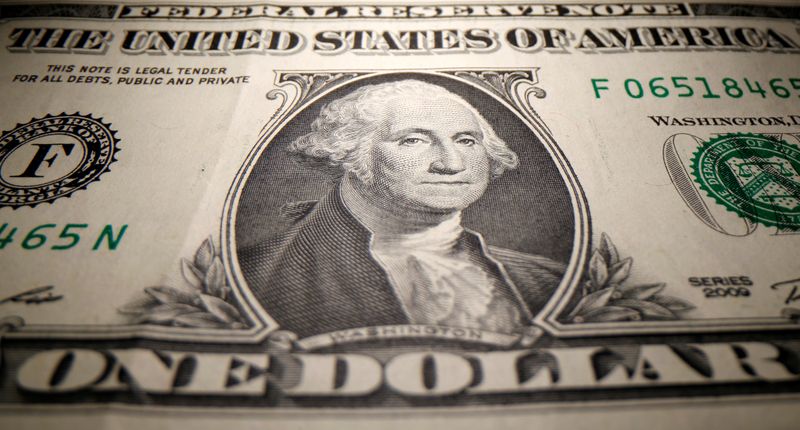By Eimi Yamamitsu
TOKYO (Reuters) - The dollar bounced off two-year lows on Wednesday as U.S. data pointed to a firm manufacturing activity, while the euro retreated from its highest levels since 2018 on profit-taking.
Economic data published on Tuesday showed U.S. manufacturing activity accelerated to a nearly two-year high in August amid a surge in new orders, with the reading from the Institute for Supply Management highest level since November 2018.
The U.S. data followed similarly upbeat Chinese and European manufacturing indicators.
Analysts said that an increase in pent-up demand has contributed to the rise in the greenback.
"In hindsight, it was a strong data," said Rikiya Takebe, senior strategist at Okasan Online Securities.
"But when you look closely into the eighteen industries, not all of them registered growth in employment... there wasn't an improvement in employment overall," he said.
The dollar index (=USD) inched up 0.16% at 92.390, having hit its lowest since April 2018 of 91.737.
Separate data from the Australian Bureau of Statistics showed Australia suffered its worst economic fall in quarterly domestic product on record last quarter as the coronavirus pushed the country into recession.
Following the data announcement, the Australian dollar
The greenback has been declining since last week, down about 1%, after the Federal Reserve announced it would focus more on average inflation and higher employment. With the Fed's shift in policy having leeway to keep U.S. interest rates lower for longer, it has encouraged traders to sell the currency.
That view was reinforced on Tuesday as Fed Governor Lael Brainard said the central bank would need to roll out more stimulus to help the economy overcome the coronavirus and fulfil the Fed's new pledge.
U.S. Treasury yields fell following the speech as additional stimulus would likely involve more aggressive bond-buying.
The euro benefited from the initial dollar sell-off, as it rose high as $1.2014 (EUR=EBS) on Tuesday, its highest since May 2018.
The common currency later reversed those gains to sit at $1.19085.
"After hitting the 1.2 level, the euro fell due to the crowded long posing," said Makoto Noji, chief FX strategist at SMBC Nikko.
"For a while, the market talked about how the Fed's new policy weakened the dollar, but the flow of traders buying back the dollar will probably become strong for a week or two," he said.
Against the Japanese yen
Japan's Liberal Diplomatic Party formally decided to hold election of Sept. 14, sources told Reuters, but analysts say the market has already priced in the risk.
"The sell-off that followed after (Shinzo Abe's) surprise resignation announcement is over, and with the market assuming (Chief Cabinet Secretary Yoshihide) Suga will win the election, there isn't much factors left to consider," said Mitsuo Imaizumi, chief FX strategist at Daiwa Securities.
Also supporting a rebound in the greenback, White House chief of staff Mark Meadows said Senate Republicans are likely to bring up a targeted COVID-19 relief bill next week.
However, U.S. House Speaker Nancy Pelosi said in a statement after a phone call with Treasury Secretary Steven Mnuchin on Tuesday that "serious differences" remain between Democrats and the White House over coronavirus relief legislation.
Among antipodean currencies, the New Zealand dollar
Elsewhere in the market, Sterling

The Chinese yuan